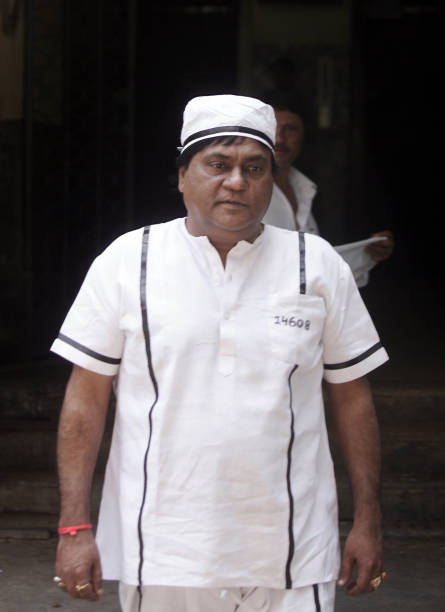Table of Contents
Introduction
Abdul Karim Telgi a mastermind name of biggest fake stamp paper scam that rocked India’s legal and administrative circles in the early 2000s, was the brain behind one of the most daring and widespread counterfeiting operations the country has ever seen. Born in 1961 in Khanapur, Karnataka, Telgi’s life story is one of shrewd deceptions, widespread scams and years of cat-and-mouse games with the law.
Early Life And Criminal Beginnings of Abdul Telgi
Abdul Karim Telgi’s journey in the world of crime started with petty thefts and fraudulent activities. However, it did not take him long to discover a lucrative opportunity in the production of counterfeit stamp paper. In the early 1990s, Telgi started mastering the art of forging stamp paper, an important document required for various legal and financial transactions in India.

Fake Empire Exposed
Telgi’s operations gradually expanded, eventually developing into a vast counterfeit stamp paper empire. They employed skilled counterfeiters, printers, and distributors, who worked tirelessly to produce counterfeit stamp paper that looked nearly identical to the genuine article. His network is spread across several states in India, making it challenging for law enforcement agencies to track and nab him.
Scale Of Stamp Paper Scam
The magnitude of Telgi’s operation was shocking. It is estimated that his fake stamp paper scam resulted in a loss of thousands of crores (billions) of Indian rupees to the government and various financial institutions. Forged stamp paper was used in countless legal and financial transactions, including property sales, bank loans, and government contracts.
Hide And Seek – Abdul Telgi’s Life
As the noose tightened on Telgi, he employed various strategies to evade capture. He constantly changed his appearance, moving from city to city and maintaining a low profile. He also bribed officials and law enforcement personnel to protect his interests and stall the investigation.
Beginning Of The End of Stamp Paper Scam
Telgi’s downfall began in 2001 when police in Pune, Maharashtra caught a group of persons using fake stamp papers. The discovery triggered a massive nationwide investigation that ultimately led to Telgi’s arrest in 2001. He was later charged with multiple counts of forgery, cheating and conspiracy.
Fake Empire of Abdul Telgi
Initially, Telgi focused on making passports. He also started a business named Arabian Metro Travels to facilitate the export of manpower to Saudi Arabia. His company produced fake documents that allowed laborers to bypass immigration checks, a practice known in the industry as “pushing”.
However, Telgi soon turned to a more lucrative venture – counterfeit stamp paper.To sell counterfiet goods he had appointed 300 agents and bulk buyers for this goods were banks, insurance companies and stock brokerage firms. The scale of this operation was staggering, estimated to be around ₹30,000 crore.
Legal Battle And Punishment
The legal battle that followed was long and complex. Telgi’s case involved a number of legal complexities, including the need to authenticate each counterfeit stamp paper and determine the extent of the financial loss caused by his operation. In 2007 he was sentenced to 30 years in prison and fined heavily.
Legacy And Influence
The case of Abdul Karim Telgi is a reminder of the weaknesses of India’s legal and administrative systems. Their ability to operate with impunity for so long exposed weaknesses in the regulation of stamp paper production and distribution. His arrest prompted the government to make significant reforms in stamp paper production and distribution processes to prevent such scams in the future.
Conclusion
The life and crimes of Abdul Karim Telgi will always remain a dark chapter in the history of India. Their audacious counterfeit stamp paper operation not only resulted in substantial financial losses but also highlighted the need for strict regulatory measures to protect against such frauds. Telgi’s story serves as a cautionary tale about the enduring battle between criminals and the law and the importance of vigilant law enforcement in protecting society against such threats. You can watch the web series on Sony Liv.
